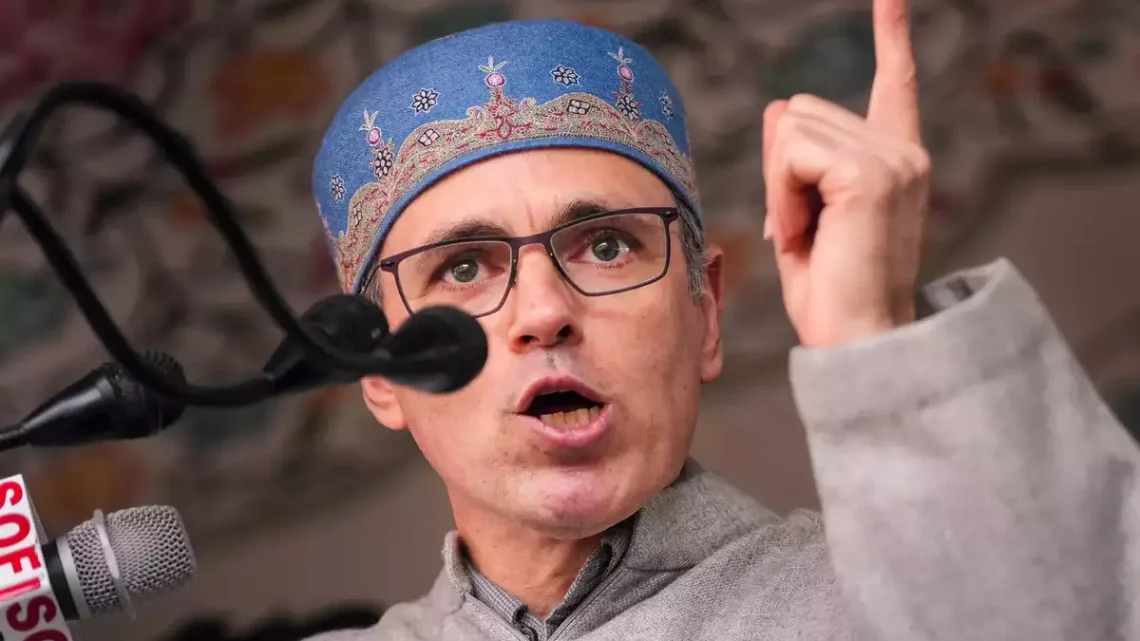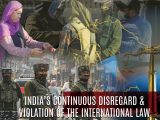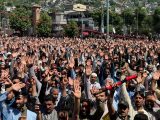
Omar Abdullah Hits Out at Modi Government’s Deception on Foreign Delegates in IIOJK
September 25, 2024Omar Abdullah, vice president of the National Conference, has sharply criticized the Indian government for inviting foreign delegates to observe the ongoing assembly elections in Indian illegally occupied Jammu and Kashmir (IIOJK).
Abdullah questions the Modi government’s true intentions, highlighting a contradiction in their approach. He noted, “When foreign governments comment, the government of India says it’s an internal matter, but now they want foreign observers to come and monitor our elections.”
He emphasized that the assembly elections are fundamentally an internal issue for the people of Jammu and Kashmir. Abdullah asserted that Kashmiris do not require validation from foreign observers to affirm their electoral process.
Further, he accused the Modi government of humiliating and harassing the local population. He claimed the government is using its machinery to detain and suppress dissenting voices, creating a climate of fear.
Despite these oppressive tactics, Abdullah praised the resilience of the people, noting that many continue to participate in the elections. “The government should not be highlighting this participation as their achievement,” he remarked, stressing that it occurs despite significant efforts to stifle voter engagement.
Abdullah’s comments are particularly poignant as he himself contests assembly polls from the Budgam and Ganderbal seats. His direct involvement underscores the contentious nature of the current political landscape in IIOJK.
The invitation to foreign observers has sparked debate over the legitimacy of the electoral process. Critics argue that it serves as a façade for the Indian government, attempting to legitimize its control over the region.
Abdullah’s critique points to a larger concern regarding the narrative around democracy in IIOJK. The region has a fraught history of political unrest and repression, and the current elections occur under the shadow of military presence and strict restrictions.
Many locals feel that the elections are manipulated to project an image of normalcy, masking the ongoing struggles for autonomy and self-determination. Abdullah’s remarks resonate with the sentiment that Kashmiris deserve the right to determine their political future without external validation.
The Modi government’s apparent contradiction in its stance raises questions about its commitment to genuine democratic processes. Observing these elections through a foreign lens may not reflect the realities on the ground, as the people of IIOJK face continued political repression.
To conclude, Omar Abdullah’s statements highlight critical issues surrounding the assembly elections in IIOJK. His call for authenticity in the electoral process reflects the broader aspirations of Kashmiris for a voice in their governance. The situation demands ongoing scrutiny and support for the rights of the people in the region, ensuring that their narratives are heard and respected on the global stage.
Omar Abdullah, vice president of the National Conference, has sharply criticized the Indian government for inviting foreign delegates to observe the ongoing assembly elections in occupied Jammu and Kashmir.
Abdullah questions the Modi government’s true intentions, highlighting a contradiction in their approach. He noted, “When foreign governments comment, the government of India says it’s an internal matter, but now they want foreign observers to come and monitor our elections.”
He emphasized that the assembly elections are fundamentally an internal issue for the people of Jammu and Kashmir. Abdullah asserted that Kashmiris do not require validation from foreign observers to affirm their electoral process.
Further, he accused the Modi government of humiliating and harassing the local population. He claimed the government is using its machinery to detain and suppress dissenting voices, creating a climate of fear.
Despite these oppressive tactics, Abdullah praised the resilience of the people, noting that many continue to participate in the elections. “The government should not be highlighting this participation as their achievement,” he remarked, stressing that it occurs despite significant efforts to stifle voter engagement.
Abdullah’s comments are particularly poignant as he himself contests assembly polls from the Budgam and Ganderbal seats. His direct involvement underscores the contentious nature of the current political landscape in IIOJK.
The invitation to foreign observers has sparked debate over the legitimacy of the electoral process. Critics argue that it serves as a façade for the Indian government, attempting to legitimize its control over the region.
Abdullah’s critique points to a larger concern regarding the narrative around democracy in IIOJK. The region has a fraught history of political unrest and repression, and the current elections occur under the shadow of military presence and strict restrictions.
Many locals feel that the elections are manipulated to project an image of normalcy, masking the ongoing struggles for autonomy and self-determination. Abdullah’s remarks resonate with the sentiment that Kashmiris deserve the right to determine their political future without external validation.
The Modi government’s apparent contradiction in its stance raises questions about its commitment to genuine democratic processes. Observing these elections through a foreign lens may not reflect the realities on the ground, as the people of Kashmir navigate a complex web of political repression.
In conclusion, Omar Abdullah’s statements highlight critical issues surrounding the assembly elections in Jammu and Kashmir. His call for authenticity in the electoral process reflects the broader aspirations of Kashmiris for a voice in their governance. The situation demands ongoing scrutiny and support for the rights of the people in the region, ensuring that their narratives are heard and respected on the global stage.

